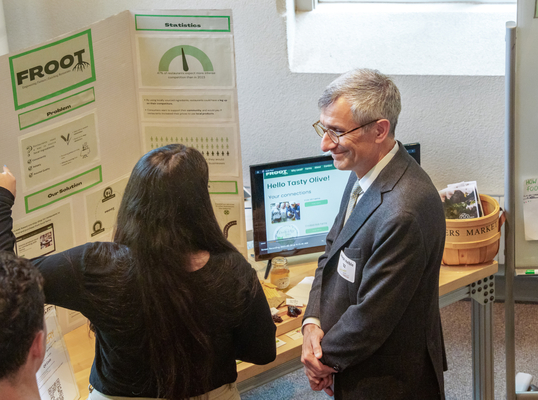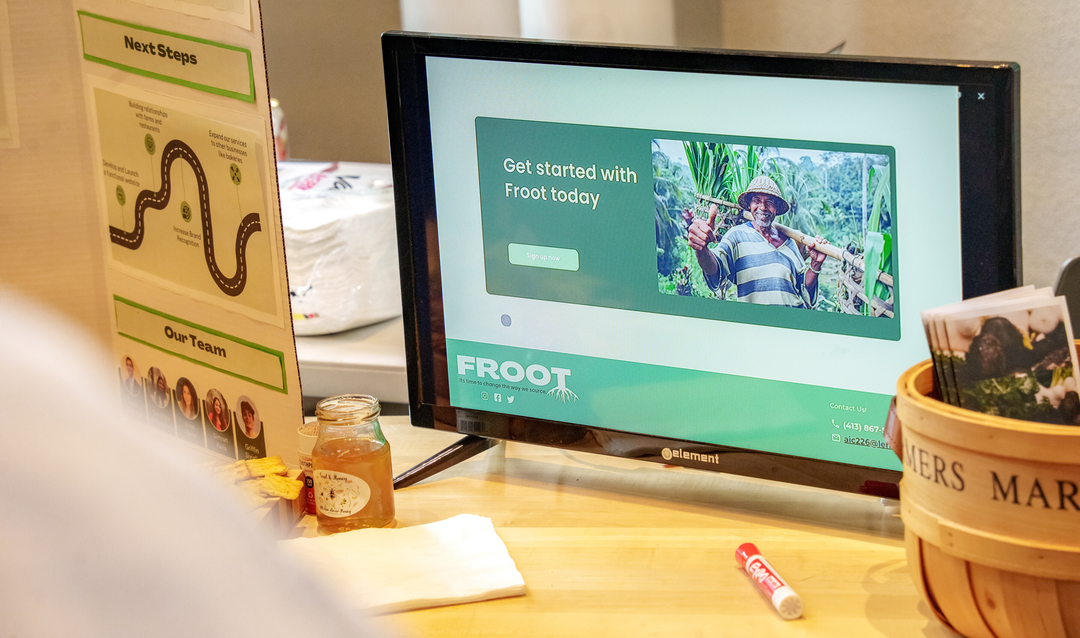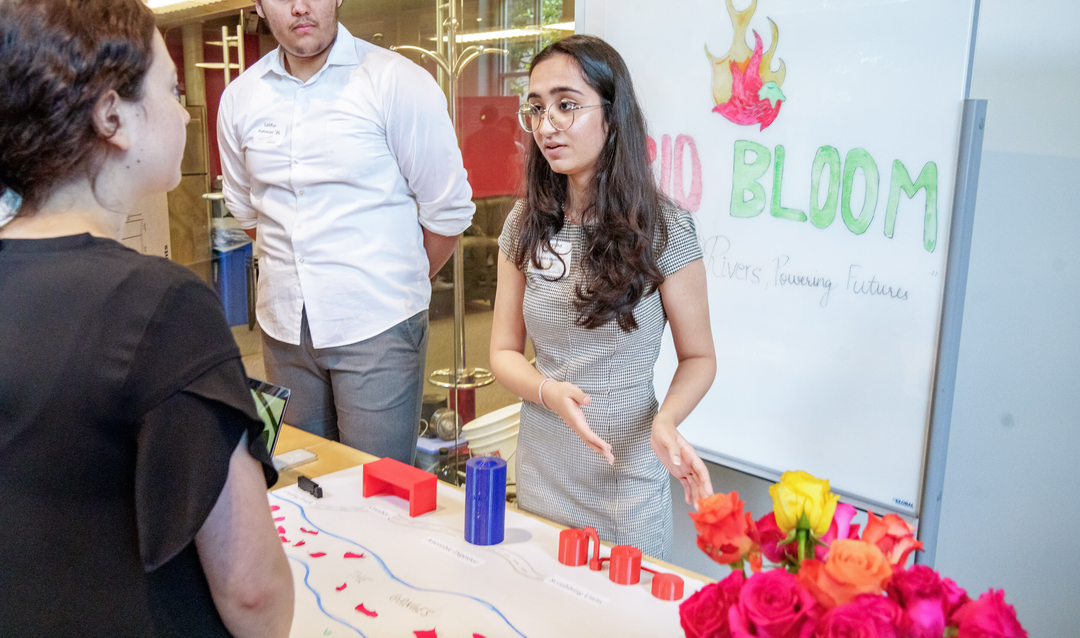After Demo Day, students can continue to develop their venture projects in the fall by attending EUREKA! Pitch Nights where they have the chance to win money to further develop their ideas in addition to getting valuable feedback. The winner of the Demo Day People’s Choice Award was announced toward the end of the event and presented to Marilyn Gao ’23, Helen Gao ’26 and Aidan Judd ’26 for ConeFusion, a new, sturdier ice cream cone made of Dutch waffles sandwiched together by caramel.
Marilyn Gao had the idea for ConeFusion after eating ice cream with stroopwfel, a thin round cookie made from layers of sweet dough held together by caramel. Her research included taste testing with a group of 15 people and talking to local ice cream shop owners who said they liked the product because it was sturdier than a traditional cone.
Gao said the Hatchery was inspiring and informative. “It was so helpful, not just with pitching at EUREKA! and funding, but also getting feedback,” she said.
Brian Quispe ’20, ’22G, the young entrepreneur in residence with Baker Institute who is also the manager of the Hatchery program, said this year’s student cohort is the most diverse group ever to go through the program. The students come from eight different countries and range from second-year undergraduates to graduate students from various majors.
Several of the students participated in the Hatchery through a partnership between Lehigh and Ashoka University in India.
Quispe started his company OcuTrap through the Hatchery three years ago and since graduating from Lehigh has returned to work for Baker Institute. Getzler said Quispe’s involvement is an example of Baker’s “ talent pipeline,” having former students come to work at Baker Institute and offer a unique perspective to current students pursuing entrepreneurial endeavors.
“This organic growth makes it easier for me to not only connect with the students, but also give them advice that they’re going to listen to and then execute,” Quispe said of his experience as a student at Lehigh for six years.
Student projects featured at Demo Day:
ConeFusion (Marilyn Gao ’23, Helen Gao ’26, Aidan Judd ’26) A Dutch caramel waffle cone.
BioBloom (Danny Tulsiani of Ashoka University, Rishon Mathew of Ashoka University, Xindi Zhang ’24, Latifur Rahman ’26) Development of a biogas plant that specifically targets discarded flowers.
Froot (Aidan Cochran ’26, Griffin Siviglia ’25, Elisa Brear ’26, Simaran Kaila ’26, Sanchita Shrivastava ’26) A web-based platform that connects local farms and restaurants.
Region (Daniel Chiavenato ’25, Sean Fleming ’24, Grayson Ruark ’26, Niall Cordes ’26) Modernizing the sale of used car parts.
CareCoalesce (Rachel Roseman ’23G) A bidirectional system for physicians and insurance companies.
RealEyes (Minh Nguyen ’25, Nga Vu ’26, Tasfia Iqbal ’25, Kien Tran ’26) Smart glasses integrated with a mobile app to empower the visually impaired.
Transpense (Cedrique Wekesa ’25) A comprehensive spend management and financing solution tailored to optimize the end-to-end financial operations of Africa’s mid-market transportation and logistics businesses.
Aquapedia (Caroline Wang ’26) An app that helps aquarists save money and time during their fish-keeping journey by guiding users on how to set up the tank and delivering all the equipment to their doorstep.
DEL-LAM (Tenzin Tselha of Ashoka University) Aims to provide a professional networking and guidance service platform for Tibetan students around the globe.




